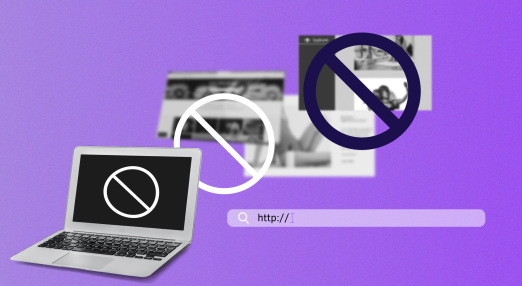Internet restrictions in Turkey violate fundamental rights
After the major earthquake that took place in Turkey on 6 February, covering 10 provinces and a population of approximately 15 million, bandwidth restriction for social media platforms such as Twitter and Tiktok was implemented. Whenever the current government was criticised for not meeting its obligations, throttling was used as an option to filter and prevent the flow of information.
Filter resources
-

Internet restrictions in Turkey violate fundamental rights
After the major earthquake that took place in Turkey on 6 February, covering 10 provinces and a population of approximately 15 million, bandwidth restriction for social media platforms such as Twitter and Tiktok was implemented. Whenever the current government was criticised for not meeting its obligations, throttling was used as an option to filter and prevent the flow of information.
Read more
-

Member States want internet service providers to do the impossible in the fight against child sexual abuse
In May 2022, the European Commission presented its proposal for a Regulation to combat child sexual abuse (CSA) online. The proposal contains a number of privacy intrusive provisions, including obligations for platforms to indiscriminately scan the private communications of all users (dubbed ”chat control”). There are also blocking obligations for internet services providers (ISPs), which is the focus of this article.
Read more
-

European Parliament approves a timid online political advertising proposal
Tomorrow, 2 February, the European Parliament will vote on the regulation on the transparency and targeting of political advertising proposal in plenary. Although this regulation intended to restrict the use of personal data to target online political advertisements, important proposals to tackle the root causes of data-driven vote manipulation were watered down during the discussion in the Parliament.
Read more
-

Policy Statement on article 17 of the proposed European Media Freedom Act
EDRi and our members Access Now, ApTI, Article 19, Citizen D, EFF, EFN, IT-Politisk Forening, Panoptykon, Vrijschrift, Wikimedia Germany alongside other organisations are calling to reject Article 17 in its current form altogether in the EMFA.
Read more
-

TERREG implementation in Romania: the Intelligence Service wants to become the police officer, prosecutor, judge and supervisor of the bailiff
An online publication discovered that another law proposal was used as a "vehicle" by the Senate Committee on National Security to propose new changes of the law for the TERREG implementation in Romania.
Read more
-

Everyone is on Mastodon now, but why?
Millions of people and organisations are flocking to Mastodon in the wake of Elon Musk’s Twitter takeover. EDRi is among those who recently started using the decentralised and free social network. What does Mastodon do better, and why does it get digital rights groups all excited?
Read more
-

Mid-point EDRi strategy review: impact and adjustments in a changing field
In April 2020, during the early months of the Covid-19 pandemic in Europe, EDRi adopted its first network multi-annual strategy for the years 2020-2024. At the mid-term of the strategy implementation, what have we learned?
Read more
-

Position paper: A safe internet for all – Upholding private and secure communications
Despite the importance of its goals, the European Union’s proposed Child Sexual Abuse Regulation (CSAR) will not only fail in its aims to protect young people, but it will also even harm those it wants to protect.
Read more
-

New EU Regulation pushes for journalism and media protection online
The European Media Freedom Act (EMFA) will intervene in the internal media market looking forward to improving the quality of media services and strengthening the integrity of the media market as a whole. EDRi finds particularly important the provisions regarding the prohibition of spyware against journalists and the rules bringing “more protection for media against unjustified online content removal”.
Read more
-

Securing privacy: Privacy International on end-to-end encryption
EDRi member Privacy International's (PI) report on end-to-end encryption (E2EE) analyses and defends expanding the use of E2EE to protect our communications. It defines E2EE, delves into its human rights implications, briefly addresses some prominent proposals for government access to E2EE content, and concludes with PI’s recommendations regarding E2EE.
Read more
-

European Commission must uphold privacy, security and free expression by withdrawing new law, say civil society
In May, the European Commission proposed a new law: the CSA Regulation. If passed, this law would turn the internet into a space that is dangerous for everyone’s privacy, security and free expression. EDRi is one of 134 organisations calling instead for tailored, effective, rights-compliant and technically-feasible alternatives to tackle this grave issue.
Read more
-

European Commission wants to eliminate online confidentiality
This might sound attention-seeking, but we really believe to be not far off the mark. It really looks like the European Commission wants to cancel encryption.
Read more
